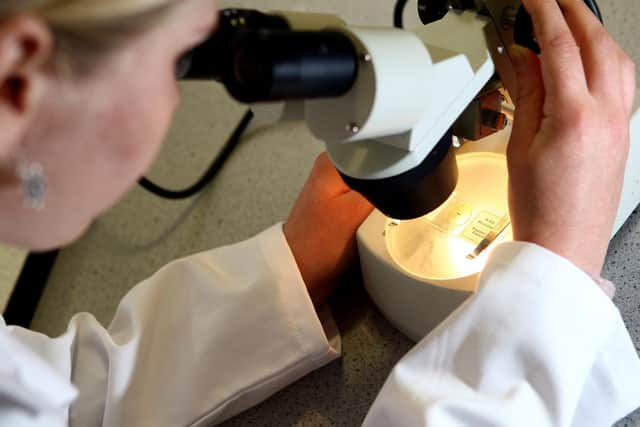Vulnerable women missing vital cancer screening in Preston
and live on Freeview channel 276
Less than one third of women with learning disabilities are receiving a vital cervical screening in Preston, figures show.
Cervical cancer charity Jo's Trust says a lack of accessible information for people with disabilities and awareness among some healthcare professionals are just some of the potential reasons fuelling low uptake nationally.
Advertisement
Hide AdAdvertisement
Hide AdWomen aged 25 to 49 are invited for screening every three years, while those aged 50 to 64 receive invitations every five years.


NHS Digital data shows that of 228 women with registered learning disabilities who were eligible for a cervical screening in the NHS Greater Preston CCG area, just 73 received the health check in 2019-20.
That's an uptake of 32 per cent, compared to 73 per cent among eligible women who did not have a disability.
Cervical screening requires a test that looks for changes in the cells of the cervix which could develop into cancer.
Advertisement
Hide AdAdvertisement
Hide AdA small sample of cells is taken from the cervix using a soft brush.
The figures exclude smear tests which were inadequate, meaning the cells could not be read properly to give a result.
Across England, only 34 per cent of women with learning disabilities received the potentially life-saving health check last year, compared to 72 per cent of other women who were eligible.
Ciara Lawrence, who has a learning disability and is a passionate campaigner for charity Mencap, said many women with learning disabilities avoid arranging a screening due to a lack of prior knowledge on the subject.
Advertisement
Hide AdAdvertisement
Hide Ad"There is not enough accessible information about smear tests out there," she said.
"We want women with learning disabilities to feel that getting a screening isn't scary.
"I also think more women would want to attend if reasonable adjustments were made."
Ciara, who is also an ambassador for Jo's Trust, has often spoken out about her positive experience of getting a cervical screening after putting the health check off for a long time.
Advertisement
Hide AdAdvertisement
Hide AdShe added: "When I was 25 I didn't feel it was right for me, I was scared and fearful. I was in a relationship but I didn't feel like I was ready.
"Then in 2018, a family member died very young from cancer. She was 48, which is no age. It made me feel that I wanted to get my smear test.
"It's only for a few minutes, and it could save your life. It's so important."
She added that some health workers are not getting adequate training to communicate with women who have learning disabilities, and give them the care they need.
Advertisement
Hide AdAdvertisement
Hide AdThe NHS figures show a wider disparity in cervical screening rates between people with learning disabilities and the general population, than in screening rates for other cancer types, such as breast and bowel.
Imogen Pinnell, health information manager at Jo's Trust, said anxiety around what the test involves, not being able to get a convenient appointment and even past trauma are all potential barriers faced by any woman eligible for a cervical screening.
But she said while it is difficult to pinpoint exact reasons behind a lower uptake among people with learning disabilities, a lack of information in an accessible and understandable format for women in this group is a "particularly significant" factor.
She added: "There are also assumptions that people with learning disabilities are not having sex and that they are low risk.
"We need to be targeting healthcare professionals who are gatekeepers to the service and help them understand some of the challenges."